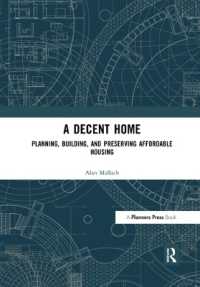Full Description
How can busy teachers successfully manage the complex task of assessing their students' reading comprehension? This invaluable book--the first stand-alone guide on the topic--presents reliable, research-supported guidelines and procedures for K-6 teachers to use in the classroom. Through practical tips and realistic examples, the book demonstrates time-saving ways to implement and adapt a wide range of existing assessments, rather than creating new ones. Also covered are strategies for conducting multiliteracy assessments, using classroom assessment to complement standardized testing, accommodating response-to-intervention mandates, and linking assessment to content-area instruction.
Contents
1. Defining Comprehension: A Difficult Task
2. Defining Assessment: A Four-Step Process
3. Assessing Comprehension: What, How, and for What Purpose
4. Questions: Promises and Pitfalls
5. Open-Ended Assessments: Powerful but Problematic
6. Look Who's Talking: Assessing Comprehension through Student Dialogue
7. Words! Words! Words!: How Can We Assess Word Comprehension?
8. Comprehension Assessment Proxies: Stand-Ins, Not Stars
9. Grading Practices: Taking a New Look at Grading Comprehension
10. Measuring Comprehension through Standardized Tests: An Oxymoron?
11. Using Classroom Comprehension Assessment as a Counterpart to Standardized Assessment: A Possibility or a Pipedream?
Glossary
Guidelines







